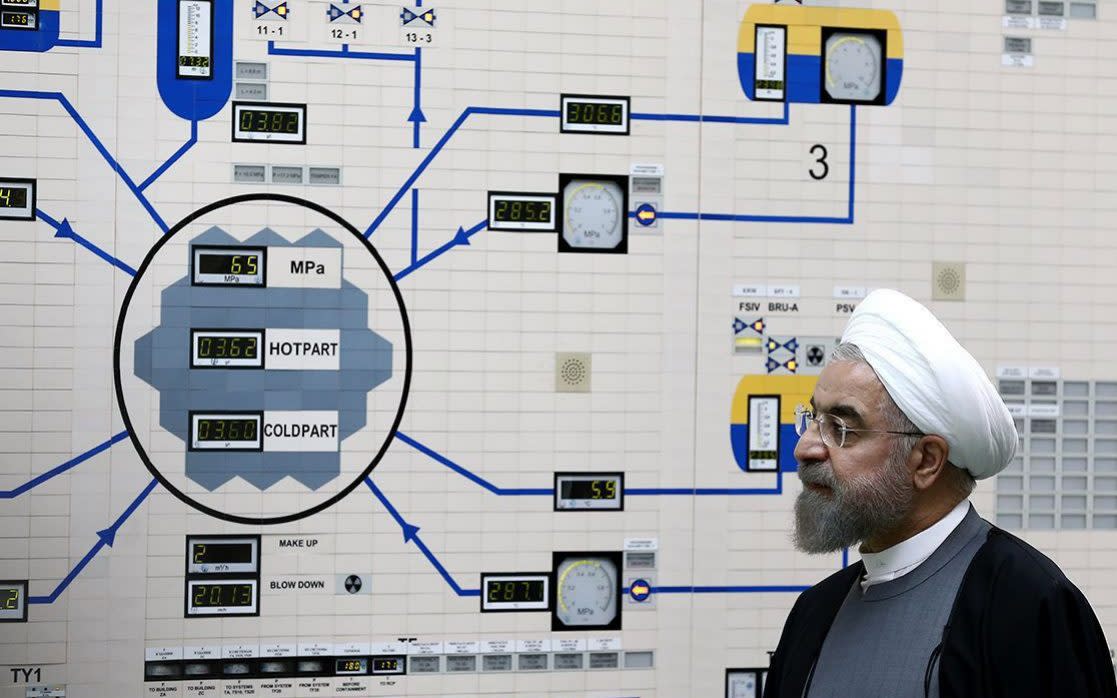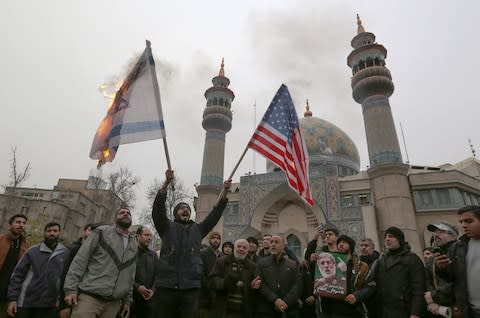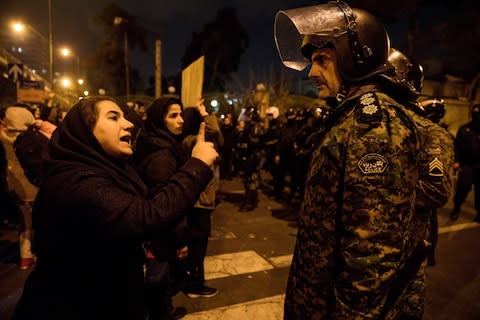Iran says enriching more uranium than before 2015 nuclear accord as countries demand compensation over downed airliner

Iran is now enriching more uranium than it was before agreeing to a nuclear accord with world powers in 2015, Iran’s president declared on Thursday, as countries that lost nationals in the downed passenger jet threatened to sue Tehran for compensation.
Hassan Rouhani, in a televised speech, said “pressure has increased on Iran but we continue to progress" after Britain, France and Germany triggered a dispute resolution in response to Iran’s violations of the terms of the agreement.
Iran has gradually scaled back its commitments under the pact in retaliation to US’s withdrawal in 2018 and its reimposition of sanctions that have crippled the country's economy.
Tehran has since resumed research and development of centrifuges, which European governments fear will lead to irreversible technological breakthroughs and reduce the "break-out" time Iran would need to build a nuclear bomb. So far, Tehran has only modestly increased its nuclear activity.
In recent months it has boosted its enrichment of uranium to 4.5 per cent - higher than the 3.67 per cent limit set by the agreement but far from the 20 per cent enrichment it was engaged in before the deal.
Uranium must be enriched to 90 per cent to be used in a nuclear weapon. Britain, France and Germany, known as the E3, had until now resisted US demands that they too quit the deal, insisting it is the only way to keep Iran in check.

Boris Johnson, the Prime Minister, who has praised Donald Trump, the US president, as a great deal-maker, called on Tuesday for the president to replace Iran's pact with major powers with his own one.
Mr Rouhani dismissed the proposal for a new deal aimed at resolving the row, saying it was a "strange" offer and criticised Mr Trump for always breaking promises.
"The government is working daily to prevent military confrontation or war," Mr Rouhani added, saying that dialogue with the international community was difficult but remained "possible".
Ben Wallace, Defence Secretary, defended the deal yesterday, saying: "We don’t think it is finished. We think there’s still life left in it. But we also want Iran to play its full part as a civilised nation in the world and to do that it must address some of its other behaviours.
“We take all our threats seriously, from whoever they come from," he said of Mr Rouhani's statement on uranium enrichment. "We take statements like that from the President seriously but recognise that is not the way to deescalate the situation."
It came amid reports that days before the E3 triggered the mechanism, which if not resolved could see a “snap back” of global sanctions on Tehran, the Trump administration has threatened to impose a 25 per cent tariff on European car imports unless they took action against Iran for defying its nuclear agreement.
Though Mr Trump has previously made threats to place such a duty on Europe’s export of automobiles, the intent behind them was to receive better terms for Washington within the US-European trade relationship, not to shift European foreign policy, according to the Washington Post.
It was not clear if the threat was necessary since the Europeans had signalled an intention to trigger the dispute mechanism for weeks The Telegraph understands that they had first seriously discussed such a move in December.
It was taken last week after Iran announced it was suspended all limits on centrifuge installation and uranium enrichment under the JCPOA under its "fifth and final" step back from the agreement.

Mohammad Javid Zarif, Iran's foreign minister, said that Britain and its partners had succumbed to US threats when they triggered the dispute mechanism and likened Washington to a “high-school bully”.
"Appeasement confirmed. E3 sold out remnants of #JCPOA to avoid new Trump tariffs. It won't work my friends. You only whet his appetite. Remember your high school bully?" he wrote on Twitter. "If you want to sell your integrity, go ahead. But DO NOT assume high moral/legal ground."
Meanwhile, the countries who lost citizens when Iran shot down a Ukrainian airliner over Tehran said they expected the Islamic Republic to pay compensation and allow a criminal investigation leading to prosecution of the perpetrators.
Iran has already arrested a number of people over the downing of the jet.
Afghanistan, Britain, Canada, Sweden and Ukraine issued a five-point list of demands that also included unfettered access for consular officials, a transparent identification and repatriation of victims remains, and access for foreign officials to take part in the air accident probe, including decoding of the black boxes.

